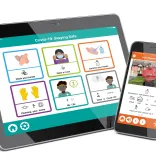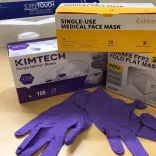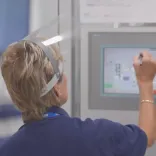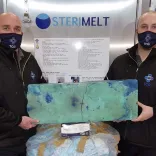As a company that provides products and services to the cellular pathology sector, helping medics to diagnose and treat cancer, CellPath touches many thousands of lives each year. “I know for a fact that my father was tested with our products,” says research and development director Dr Neil Haine. “That really hits home how important CellPath is as a company. But we’re not resting on our laurels – we’re always striving to make new products and keep ourselves ahead of our competitors.”
CellPath’s products are used in two areas: histology and cytology. Histology involves looking at cells that come from biopsies, including investigations for prostate or breast cancer. Cytology tests cells in suspension, such as from cervical smears. CellPath produces all the consumables needed for diagnosis, from the chemicals needed to process laboratory samples to the slides that pathologists use to examine them. It’s also respon - sible for a cellular pathology archive (CellNass) that stores tissue samples for the NHS.
Cancer diagnostics is a challenging, fast-moving field, and CellPath aims for constant innova - tion. “We want to develop the next generation of products and services, providing better perfor - mance in cancer diagnosis and reduced turnaround times,” says Dr Haine. “Out of our workforce of 100 people, five are full-time research and development. We’re looking to make more and more of our revenue from new products.”
The company moved to Newtown from Hertfordshire in 1990, but 83-year-old chairman Peter Webber’s association with Wales goes back much further. In 1940, he was evacuated here as a five-year-old during the Second World War. “Mid Wales is God’s own country,” he says, “and we’re very proud of our entrepreneurs: Laura Ashley, Robert Owen, Sir Pryce Pryce-Jones. I always say there’s something in the water up here.”
There’s certainly something in the ecosystem. CellPath is a member of the MediWales network, exhibiting regularly at its events, and it enjoys good relationships with Welsh universities including Aberystwyth and South Wales. The company has received financial support from the Welsh Government, including funding to assist with R&D equipment. Being in Wales has delivered the benefits of good transport links and high-speed internet – plus, Peter Webber believes, the ability to build a strong, loyal workforce.
“We have a strong family atmosphere and a lot of loyalty, being a Welsh company in Wales,” he says. “We’re well known for supporting the local football team. We have many people who have worked here for a long time, and multiple generations of the same family. At the same time, the strength of our brand and the quality of life here attract skilled people from all around the world. We have people from Spain, Romania, Malta and Poland. We’re a global company with a global workforce.”
CellPath is certainly thinking globally. It holds ISO 13485 certification for design of in vitro diagnostic devices, and this is a big draw for multinational companies seeking to use CellPath’s expertise. Webber says: “We’ve also had excellent support from the Welsh Government in achieving export growth, such as assistance with trade missions and attending exhibitions to promote our products. That’s been highly successful in helping us to increase our export sales. The cancer diagnostics market grows by 8 to 10% per year, and we're growing the market all the time for our products and services.”
Webber has high hopes for CellPath’s future. “All my life, I’ve always believed that there is a better way to do things. We’ve designed and developed unique products and services, such as CellNass, that put us above the rest. We’re growing at a good rate, we’re well-financed, and we have a very substantial base, with a turnover of £10million and a healthy profit. The opportunities are tremendous.”




